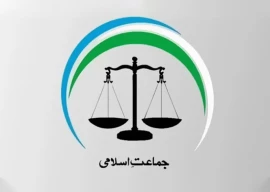
A local court sent eight persons, including the chief executive officer (CEO) of a software company, on a seven-day physical remand on Thursday in a case of money laundering and fraud.
The accused have been remanded in the Federal Investigation Agency’s (FIA) custody.
The FIA had earlier arrested the software company CEO, Burhan Mirza, and booked him for money laundering, forgery, harassment, phishing, extortion, fraud and other cybercrimes. Seven others, including the company’s owner, Junaid Mansoor and head of the business unit Umair Siddique, were also nominated in the FIR registered on behalf of state at a cybercrime reporting centre.
The company claims on one of its social media accounts to be a multi-million dollar entity providing web development services to international clients.
According to the FIR, the company operates different websites offering services such as web design and development and its agents falsely identify themselves as the officials of the governments of the United Kingdom, United States of America and United Arab Emirates to its clients.
These agents would pretend to assist clients for registering trademarks, asking them to deposit foreign exchange for the service, the FIR states, adding that they would charge a minimum of $100 on account of initiating the registration process.
The FIR also revealed that the company had at least a dozen sister companies, allegedly being used for criminal activities.
The accused committed the crimes included in the FIR between 2015 and 2021, the FIR states.
Raids
Mirza was arrested from a house in Defence Housing Authority Phase VIII. Two of his laptops and a mobile phone were also confiscated during the raid carried out in the aftermath of an inquiry.
The inquiry was launched on the basis of a source report on international scammers operating in Pakistan that the FIA received from its cybercrime wing in Islamabad.
Later, another raid was carried out at the head office of the software company, during which the FIA seized details of various credit cards, including the card verification value security code, voice notes and evidence of funds layering in domestic and international accounts.
Besides, the FIA also found a call recording of one of the company’s international clients who had been a victim of its fraudulent practices. In the recording, the client is heard complaining about an unauthorised credit card recharge amounting to $1,300.
The officials also seized electronic gadgets including CPUs, laptops, mobile phones, hard drives, servers and other relevant data from the company’s head office.
The probe
Further investigation and examination of digital evidence revealed that the company operated websites using fake UAN numbers and dummy addresses of the UK and USA for phishing.
It was also found during the probe that more than 12 bank accounts were being maintained in the names of accused. These bank accounts, however, were being used for transferring large amounts of money locally and internationally.
According to the FIA, the accounts were being used for money laundering via layering of funds.
The company was receiving payments through an illegal hundi/hawala channel, evidence of which was recovered from the laptop of its CEO, the FIA maintains.
Of law and liability According to digital rights advocate Hija Kamran, it is to be seen that how effectively law enforcement authorities will handle the case.
“We saw previously that in a similar high profile case that the company resumed business within a couple of months,” she added, raising the question that how did law enforcers make sure that the company did not get involved in illegal activities again.
These are the important questions that law enforcement agencies need to answer, she added.
According to Yaser Aman Khan, an advocate of the Supreme Court, now there are strict laws to deal with such scams involving fraud, forgery and money laundering.
“With time, legislations on electronic and cybercrime has empowered the FIA to control such scams,” he maintained.
WITH ADDITIONAL REPORTING BY NASIR BUTT






1725254039-0/Untitled-design-(24)1725254039-0-270x192.webp)

















COMMENTS (1)
Comments are moderated and generally will be posted if they are on-topic and not abusive.
For more information, please see our Comments FAQ